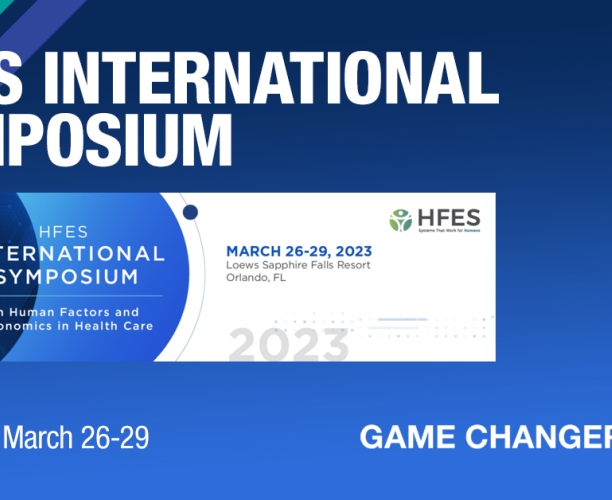

HFES International Symposium
Ipsos is delighted to be taking part in this year’s Human Factors and Ergonomics in Health Care conference – an event dedicated to sharing the latest science and best practices, understanding innovations in the safety of health care providers and patients, and sharpening the focus of HF/E initiatives.
Be sure to join us for our poster presentation on March 28 | 4:45pm exploring Human Factors with Kids! Challenges and considerations needed for testing with pediatric populations with their caregivers.
In recent years, the FDA has placed a heightened importance on conducting Human Factors testing for products that are designed for pediatric populations. The Federal Food, Drug, and Cosmetic Act (FD&C Act), defines pediatrics patients as persons aged 21 or younger at the time of their diagnosis or treatment. However, developing and testing products for persons under the age of 21 presents a myriad of potential issues, including but not limited to:
- What is the appropriate delivery vehicle for the intended age group,
- What aspects of cognitive/physical/emotional development does the research team need to consider when developing study protocols,
- What does the level of adult caregiver involvement and responsibility look like for the target population, and
- Who is the appropriate group of users to include for human factors testing of pediatric products.
As Human Factors researchers, it is our responsibility to design a research methodology that ensures the products being released on the market appropriately address these issues. In this poster, Ipsos, AbbVie, and Roche discuss common problems that they have encountered working with pediatric patient populations and their adult caregivers. Our poster uncovers common issues when running HF studies that are encountered with pediatrics and adult caregivers, and recommendations on how to address these problems.
We highlight the role that parents and legal guardians play as caregivers in the role of treatment for pediatric patients and how that role can be best implemented in HF testing. We discuss the role that a pediatric user’s age, condition, medication experience, and socioeconomic background can impact the potential real-world use of a product. We use this to highlight potential adult caregiver involvement throughout a pediatric patient’s therapy, from diagnosis through treatment. We then highlight how real-world expectation of usage should be applied towards regulatory expectations for HF testing and justification for certain study designs.
We conclude the poster by demonstrating the various ways of implementing the role of an adult caregiver in HF research. We highlight impacts that pediatric-caregiver relationships can have on user performance, potential study designs for how an adult caregiver could be involved in a session, and considerations to ensure that the HF study design will accurately reflect potential real-world usage of medical device and pharmaceutical products.
Click here to learn more about joining us at HFES.
Be sure to also drop by our booth (table top 8) to learn more about Ipsos’ User Experience and Human Factors expertise, and how we apply evidence-based approaches to the exploration, design, and evaluation of health care products and services to meet user needs.
Want to stay abreast of our latest data and insights in context for leaders in business, politics and beyond on a weekly basis? Sign-up for our newsletter here.
Other events
-
26
Feb 2026![[WEBINAR] 2026 KEYS: Battle for Attention](/sites/default/files/styles/200x112/public/ct/event/2026-02/thumbnail-keys-Battle-Attention_0.jpg?itok=9istIo8X)
-
24
Mar 2026 -
01
Apr 2026![[WEBINAR] How to build trust in the AI era](/sites/default/files/styles/200x112/public/ct/publication/2026-02/thumbnail-trust-ai_0.jpg?itok=H-nNITMi)

